

FROM THE COMPANY
TO THE SHAREHOLDER
How to get the property
out of the company?
We will suggest the most suitable way
FROM THE COMPANY
TO THE SHAREHOLDER
How to get the property
out of the company?
We will suggest the most suitable way
About us
We are a Czech-Slovak law firm with headquarters in Prague and Bratislava.
Since 2003, we have been providing comprehensive legal services for businesses in the Czech Republic and Slovakia.
Our clients are self-employed entrepreneurs and e-shops, small and medium-sized businesses and manufacturing companies, but also large multinational companies in the field of healthcare, engineering or retail, including the operation of shopping centres. Some have been with us since 2003, most of them we have been working for more than 10 years, but we also deal with budding entrepreneurs and start-ups.

Do you own real estate through a company and
looking for the possibility to simplify management of your property?
Do you want to get rid of the company, but it owns real estate and you don’t know what to do with taxes?
We are LAWYERS and TAX ADVISORS focusing on
REAL ESTATE and COMPANY LAW. We will propose
the best possible transfer of real estate from the company to companion.
These problems are mainly solved by foreigners who in the past were forced by Czech legislation to establish a limited liability company or other business corporation for the purpose of acquiring real estate. However, the conditions have changed and both EU foreigners and foreigners from third countries outside the EU can now acquire real estate in the Czech Republic directly without any restrictions.
Why our law firm?
- Comprehensive legal services for companies
- We also deal with accounting and tax matters
- Legal solutions for the Czech and Slovak markets in one place
- More than 20 years of experience
- Verified references from long-term clients

References
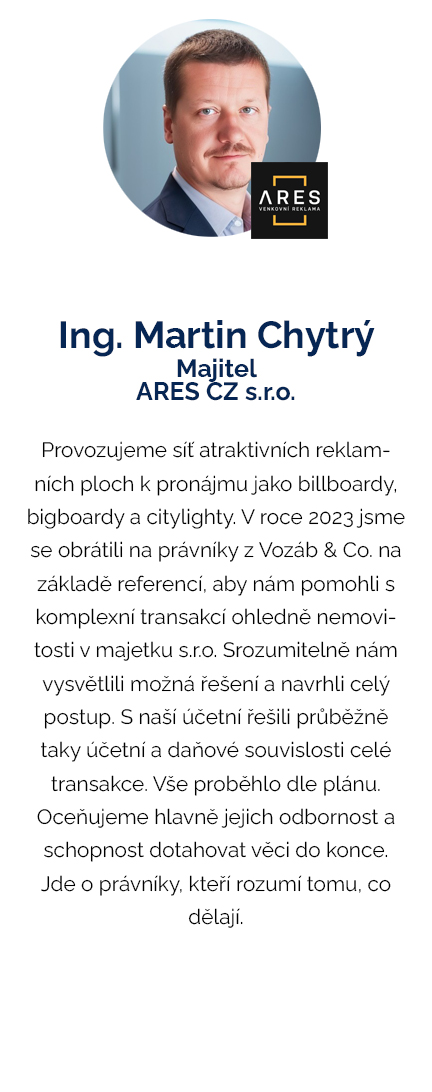


Trust us



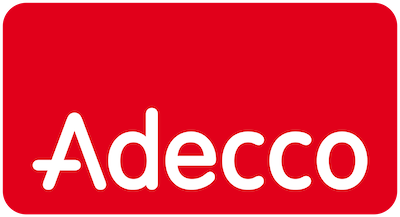

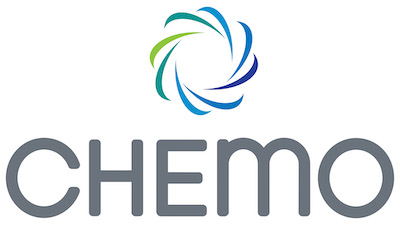








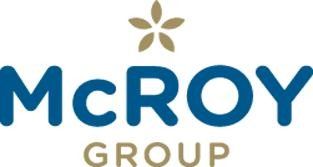













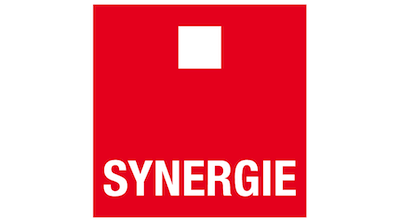





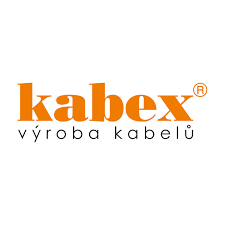













What can we do for you in the area of transferring property (real estate) to a shareholder?
TRANSFER OF COMPANY NAME TO PARTNER
Instead of the financially demanding transfer of real estate from the company’s assets to the partner and the subsequent liquidation of the company, which would mean multiple taxation, it is possible to transfer the company’s assets to the partner, when the partner (even a natural person) takes over all the company’s assets and liabilities and the company is dissolved and deleted from the commercial register in one single process.
By default, a company should transfer property (property) to another person (including a partner) at market value, and the income from such a transfer would be part of the company’s income tax base. It is then a question of how many tax-deductible costs the company can set against this, however, as a rule, the company’s income tax will be based on 19%. In addition, this procedure does not deal with the existence of the company or the money or claims in the company’s property after the property (real estate) has been sold. If the partner wanted to dispose of the money as an individual, he would probably have to proceed with the payment of the dividend, which is taxable income on the part of the partner at a rate of 15%.
LIQUIDATION OF THE COMPANY AND TAKEOVER OF THE PROPERTY AS LIQUIDATION BALANCE
Another alternative is to liquidate the company, with the partner taking over the property as part of the liquidation balance in non-monetary form.
Although the share of the liquidation balance is generally paid in money, the agreement of the partners or the partnership agreement may stipulate otherwise. A non-monetary payment of the liquidation balance can then be made by transferring the items constituting the liquidation substance to the partner. The reason for such a procedure can be a direct interest in the acquisition of individual items owned by the company by a specific partner or the fear that the price will not be favourable enough when monetizing them.
In this case, the partner does not continue with depreciation and the entry price of the tangible property acquired by the partner of the defunct business corporation as part of the liquidation balance in non-monetary form will be determined according to § 29 paragraph 1 letter d) ZDP replacement purchase price according to a special legal regulation, which is the Property Valuation Act and its implementing decree. In the case of real estate, the replacement purchase price will be the ascertained price, and in the case of movables and services, it will be the usual price, or the market value.
As far as VAT is concerned, in the case of a non-monetary liquidation balance, the provision of § 6b, paragraph 2 of the VAT Act does not apply, i.e. if a company that is a VAT payer is dissolved as part of the liquidation, the partner acquiring the property constituting the liquidation substance does not become a VAT payer.
Taking over the real estate as a liquidation balance within the liquidation also makes it possible to solve a situation where there are several partners and each one has an interest in part of the assets (other real estate) of the company. As part of the distribution of the liquidation balance, each partner can receive property (real estate) according to the partners’ agreement.
However, liquidation is a more complicated process, when you have to publish the entry into liquidation in the trade journal and then wait 3 months for any applications for creditors’ claims. Furthermore, it is necessary to communicate with the regional state archive regarding the archiving of the company’s documents and also to obtain the consent of the relevant financial authority to delete the company from the commercial register.
WHAT ABOUT INCOME TAX ON THE PARTNER’S SIDE
A frequently asked question then is, what about the income tax on the part of the partners in the case of both of the above transactions? However, the result of taxation is completely individual and depends on the amount of the partner’s contributions to the share capital, the amount of the partner’s extra payments outside of the share capital or contributions to other capital funds, as well as the company’s obligations towards the partner, etc.
Both of the above transactions take place under different conditions, so you need to consider all the invoices and set up the transaction as needed.
If you are interested in more detailed information, please do not hesitate to contact us. After submitting the necessary documents, we are able to propose a specific procedure in advance and confirm the total final cost of the given transaction.
Contact us
Phone: +420 603 774 473
Email: jakub@vozab.com

 Vystudoval Právnickou fakultu University Karlovy v Praze (1997–2002), kde rovněž později obhájil rigorózní práci na téma Ochranná známka Společenství a byl mu udělen titul JUDr. (2006). Následně pokračoval v postgraduálních studiích na Fakultě mezinárodních vztahů Vysoké školy ekonomické v Praze (2005–2012) v oboru Obchodní a mezinárodní hospodářské právo, kde obhájil doktorskou disertační práci na téma Nezapsaná označení zboží a služeb užívaná v obchodě a získal titul Ph.D. (2012). V minulosti pracoval v Advokátní kanceláři Nipl, Žák, Slavíček, Jaroš & spol. jako advokátní koncipient (2002–2005) a následně jako advokát (2005–2011). Od srpna 2011 je řídícím partnerem advokátní kanceláře Vozáb & Co. Právní služby poskytuje v českém a anglickém jazyce a věnuje se zejména obchodnímu právu, právu duševního vlastnictví, zdravotnictví a nemovitostí a vymáhání souvisejících nároků ve sporných řízeních.
Vystudoval Právnickou fakultu University Karlovy v Praze (1997–2002), kde rovněž později obhájil rigorózní práci na téma Ochranná známka Společenství a byl mu udělen titul JUDr. (2006). Následně pokračoval v postgraduálních studiích na Fakultě mezinárodních vztahů Vysoké školy ekonomické v Praze (2005–2012) v oboru Obchodní a mezinárodní hospodářské právo, kde obhájil doktorskou disertační práci na téma Nezapsaná označení zboží a služeb užívaná v obchodě a získal titul Ph.D. (2012). V minulosti pracoval v Advokátní kanceláři Nipl, Žák, Slavíček, Jaroš & spol. jako advokátní koncipient (2002–2005) a následně jako advokát (2005–2011). Od srpna 2011 je řídícím partnerem advokátní kanceláře Vozáb & Co. Právní služby poskytuje v českém a anglickém jazyce a věnuje se zejména obchodnímu právu, právu duševního vlastnictví, zdravotnictví a nemovitostí a vymáhání souvisejících nároků ve sporných řízeních.

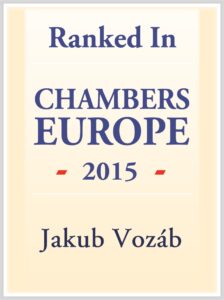

 Vyštudoval Právnickú fakultu Masarykovej univerzity v Brne (2008–2013), kde v priebehu štúdia absolvoval niekoľko stáží (august 2009 – august 2012). Po ukončení štúdia pracoval ako advokátsky koncipient spolupracujúci s advokátskou kanceláriou JUDr. Miroslava Tyrnera (2013–2017) a s advokátskou kanceláriou Vozáb & Co.(2016–2017), kde od augusta 2017 pôsobí ako trvalo spolupracujúci advokát. Právne služby poskytuje v slovenskom, českom a anglickom jazyku. Venuje sa najmä obchodnému právu, občianskemu právu, oblasti e-commerce a vymáhaniu súvisiacich nárokov.
Vyštudoval Právnickú fakultu Masarykovej univerzity v Brne (2008–2013), kde v priebehu štúdia absolvoval niekoľko stáží (august 2009 – august 2012). Po ukončení štúdia pracoval ako advokátsky koncipient spolupracujúci s advokátskou kanceláriou JUDr. Miroslava Tyrnera (2013–2017) a s advokátskou kanceláriou Vozáb & Co.(2016–2017), kde od augusta 2017 pôsobí ako trvalo spolupracujúci advokát. Právne služby poskytuje v slovenskom, českom a anglickom jazyku. Venuje sa najmä obchodnému právu, občianskemu právu, oblasti e-commerce a vymáhaniu súvisiacich nárokov. Vystudovala Obchodní akademii (1990–1994) a po ukončení studií pracovala pro takové společnosti jako 3M ČESKO (1999–2001), PHILIPS Česká republika (2001–2004), iGATE (2012–2018) a JOKA AUDIT (2018–2022). V roce 2022 nastoupila do advokátní kanceláře Vozáb & Co. na pozici asistentky. Markéta hovoří česky a anglicky a má na starosti kompletní administrativní zázemí kanceláře.
Vystudovala Obchodní akademii (1990–1994) a po ukončení studií pracovala pro takové společnosti jako 3M ČESKO (1999–2001), PHILIPS Česká republika (2001–2004), iGATE (2012–2018) a JOKA AUDIT (2018–2022). V roce 2022 nastoupila do advokátní kanceláře Vozáb & Co. na pozici asistentky. Markéta hovoří česky a anglicky a má na starosti kompletní administrativní zázemí kanceláře. Vystudovala Provozně-ekonomickou fakultu Mendelovy univerzity v Brně (2007–2011), přičemž v rámci studií získala pracovní zkušenosti výkonem pomocných účetních a administrativních prací pro Novoměstské sociální služby – Nové Město na Moravě. Po ukončení studií nastoupila do advokátní kanceláře Vozáb & Co. na pozici asistentky. Lenka hovoří česky a anglicky a má na starosti kompletní administrativní zázemí kanceláře.
Vystudovala Provozně-ekonomickou fakultu Mendelovy univerzity v Brně (2007–2011), přičemž v rámci studií získala pracovní zkušenosti výkonem pomocných účetních a administrativních prací pro Novoměstské sociální služby – Nové Město na Moravě. Po ukončení studií nastoupila do advokátní kanceláře Vozáb & Co. na pozici asistentky. Lenka hovoří česky a anglicky a má na starosti kompletní administrativní zázemí kanceláře. Vystudoval Vysokou školu ekonomickou v Praze (1995–2000) a Právnickou fakultu University Karlovy v Praze (2005–2010), kde rovněž později obhájil rigorózní práci na téma Územní plánování obcí a jeho vliv na životní prostředí a byl mu udělen titul JUDr. (2015). Dále získal členství v celosvětové organizaci Association of Chartered Certified Accountants (ACCA) udělující titul FCCA a složil zkoušky v oblasti řízení podniku a finančního výkaznictví pro mezinárodní účetní standardy (2000–2004). V minulosti pracoval v oddělení auditu pro Arthur Andersen (2000–2004), Ernst & Young (2002–2004) a jako finanční ředitel společnosti Canon (2004–2005). Od roku 2005 pracuje jako daňový poradce a advokát a trvale spolupracuje s advokátní kanceláří Vozáb & Co. Daňové poradenství a právní služby poskytuje v českém a anglickém jazyce a kromě oblasti daní a účetnictví se věnuje zejména obchodnímu právu, právu nemovitostí, stavebnímu právu a zastupování v řízení podle stavebního zákona.
Vystudoval Vysokou školu ekonomickou v Praze (1995–2000) a Právnickou fakultu University Karlovy v Praze (2005–2010), kde rovněž později obhájil rigorózní práci na téma Územní plánování obcí a jeho vliv na životní prostředí a byl mu udělen titul JUDr. (2015). Dále získal členství v celosvětové organizaci Association of Chartered Certified Accountants (ACCA) udělující titul FCCA a složil zkoušky v oblasti řízení podniku a finančního výkaznictví pro mezinárodní účetní standardy (2000–2004). V minulosti pracoval v oddělení auditu pro Arthur Andersen (2000–2004), Ernst & Young (2002–2004) a jako finanční ředitel společnosti Canon (2004–2005). Od roku 2005 pracuje jako daňový poradce a advokát a trvale spolupracuje s advokátní kanceláří Vozáb & Co. Daňové poradenství a právní služby poskytuje v českém a anglickém jazyce a kromě oblasti daní a účetnictví se věnuje zejména obchodnímu právu, právu nemovitostí, stavebnímu právu a zastupování v řízení podle stavebního zákona. Vystudovala Právnickou fakultu Masarykovy University v Brně (2010–2015), kde v průběhu studia absolvovala praxi v několika advokátních kancelářích a také u Okresního soudu ve Vsetíně (2014). Po ukončení studií nastoupila do advokátní kanceláře Vozáb & Co., kde v minulosti pracovala jako advokátní koncipientka (2015–2019) a kde od července 2019 působí jako trvale spolupracující advokátka. Právní služby poskytuje v českém a anglickém jazyce a věnuje se zejména obchodnímu právu, právu nemovitostí a vymáhání souvisejících nároků.
Vystudovala Právnickou fakultu Masarykovy University v Brně (2010–2015), kde v průběhu studia absolvovala praxi v několika advokátních kancelářích a také u Okresního soudu ve Vsetíně (2014). Po ukončení studií nastoupila do advokátní kanceláře Vozáb & Co., kde v minulosti pracovala jako advokátní koncipientka (2015–2019) a kde od července 2019 působí jako trvale spolupracující advokátka. Právní služby poskytuje v českém a anglickém jazyce a věnuje se zejména obchodnímu právu, právu nemovitostí a vymáhání souvisejících nároků. Vystudoval Právnickou fakultu University Karlovy v Praze (2007–2013), kde v průběhu studia absolvoval praxi u Exekutorského úřadu pro Prahu 3 (březen 2010 – srpen 2011). Po ukončení studií nastoupil do advokátní kanceláře Vozáb & Co., kde v minulosti pracoval jako advokátní koncipient (2013–2016) a kde od října 2016 působí jako trvale spolupracující advokát. Právní služby poskytuje v českém a anglickém jazyce a věnuje se zejména obchodnímu právu, právu nemovitostí a vymáhání souvisejících nároků.
Vystudoval Právnickou fakultu University Karlovy v Praze (2007–2013), kde v průběhu studia absolvoval praxi u Exekutorského úřadu pro Prahu 3 (březen 2010 – srpen 2011). Po ukončení studií nastoupil do advokátní kanceláře Vozáb & Co., kde v minulosti pracoval jako advokátní koncipient (2013–2016) a kde od října 2016 působí jako trvale spolupracující advokát. Právní služby poskytuje v českém a anglickém jazyce a věnuje se zejména obchodnímu právu, právu nemovitostí a vymáhání souvisejících nároků. Vystudovala Právnickou fakultu University Karlovy v Praze (2003–2008), kde absolvovala studijní stáž na civilněprávním a trestněprávním úseku Obvodního Soudu pro Prahu 5 (září 2006 – květen 2007). Ve studiích pokračovala ve Velké Británii, kde vystudovala obor International and European Law na University of Aberdeen (2010–2011) a byl jí udělen titul LL.M. Po ukončení studií nastoupila do advokátní kanceláře Vozáb & Co., kde v minulosti pracovala jako advokátní koncipientka (2011–2015) a kde od října 2015 působí jako trvale spolupracující advokátka. V rámci postgraduálního studia na Právnické fakultě University Karlovy v Praze obhájila rigorózní práci v oblasti mezinárodního práva soukromého a byl jí udělen titul JUDr. (2014). Právní služby poskytuje v českém, anglickém, slovenském a polském jazyce a věnuje se zejména obchodnímu právu, pracovnímu právu a dále oblasti nemovitostí.
Vystudovala Právnickou fakultu University Karlovy v Praze (2003–2008), kde absolvovala studijní stáž na civilněprávním a trestněprávním úseku Obvodního Soudu pro Prahu 5 (září 2006 – květen 2007). Ve studiích pokračovala ve Velké Británii, kde vystudovala obor International and European Law na University of Aberdeen (2010–2011) a byl jí udělen titul LL.M. Po ukončení studií nastoupila do advokátní kanceláře Vozáb & Co., kde v minulosti pracovala jako advokátní koncipientka (2011–2015) a kde od října 2015 působí jako trvale spolupracující advokátka. V rámci postgraduálního studia na Právnické fakultě University Karlovy v Praze obhájila rigorózní práci v oblasti mezinárodního práva soukromého a byl jí udělen titul JUDr. (2014). Právní služby poskytuje v českém, anglickém, slovenském a polském jazyce a věnuje se zejména obchodnímu právu, pracovnímu právu a dále oblasti nemovitostí. Vystudovala Právnickou fakultu University Karlovy v Praze (2005–2011), kde absolvovala studijní stáž na právnické fakultě Universidad de Zaragoza, Španělsko (2009–2010) a studijní stáž na občanskoprávním úseku Obvodního soudu pro Prahu 9 (březen – květen 2009). Po ukončení studií nastoupila do advokátní kanceláře Vozáb & Co., kde v minulosti pracovala jako advokátní koncipient (2011–2015) a kde od března 2015 působí jako trvale spolupracující advokátka. V rámci postgraduálního studia na Právnické fakultě University Karlovy v Praze obhájila rigorózní práci na téma předběžná opatření soudu a byl jí udělen titul JUDr. (2016). Právní služby poskytuje v českém, anglickém a španělském jazyce a věnuje se zejména obchodnímu a pracovnímu právu a dále oblasti duševního vlastnictví a vymáhání souvisejících nároků.
Vystudovala Právnickou fakultu University Karlovy v Praze (2005–2011), kde absolvovala studijní stáž na právnické fakultě Universidad de Zaragoza, Španělsko (2009–2010) a studijní stáž na občanskoprávním úseku Obvodního soudu pro Prahu 9 (březen – květen 2009). Po ukončení studií nastoupila do advokátní kanceláře Vozáb & Co., kde v minulosti pracovala jako advokátní koncipient (2011–2015) a kde od března 2015 působí jako trvale spolupracující advokátka. V rámci postgraduálního studia na Právnické fakultě University Karlovy v Praze obhájila rigorózní práci na téma předběžná opatření soudu a byl jí udělen titul JUDr. (2016). Právní služby poskytuje v českém, anglickém a španělském jazyce a věnuje se zejména obchodnímu a pracovnímu právu a dále oblasti duševního vlastnictví a vymáhání souvisejících nároků.